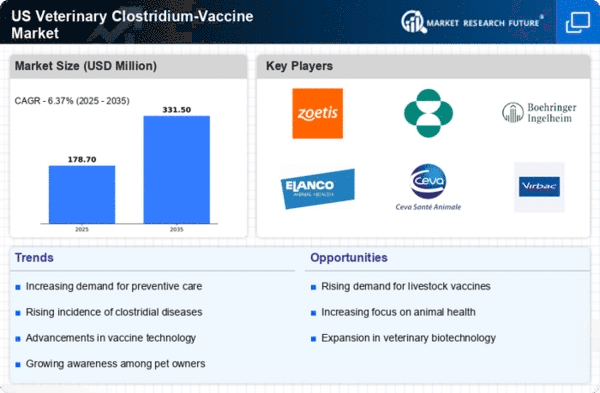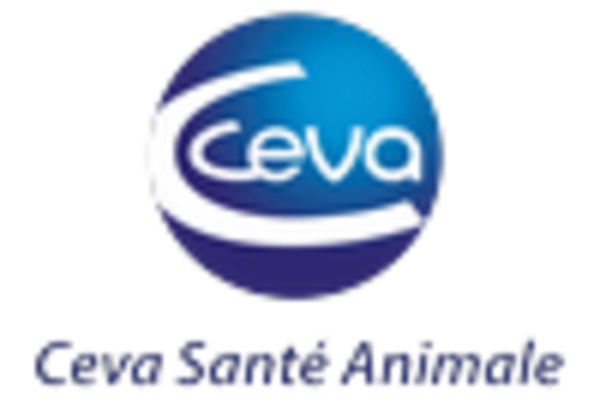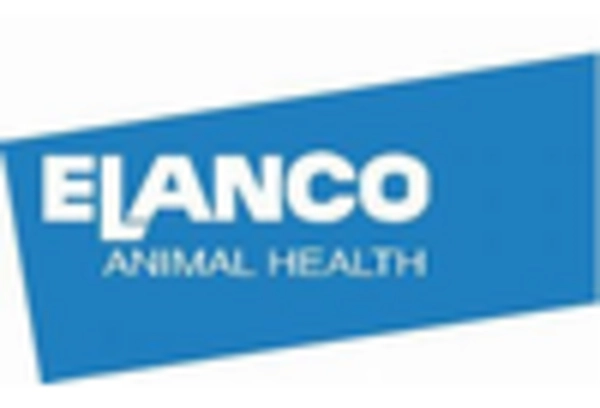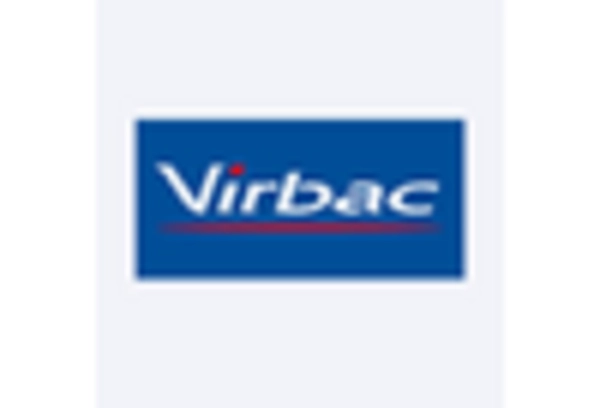Growing Livestock Industry
The expansion of the livestock industry in the United States is a crucial driver for the veterinary clostridium-vaccine market. As the demand for meat, dairy, and other animal products continues to rise, farmers are increasingly focused on maintaining the health of their herds. Vaccination against clostridial diseases is seen as a vital component of herd management, ensuring productivity and minimizing losses. The livestock sector has witnessed a growth rate of approximately 5% annually, which correlates with an increased focus on preventive healthcare measures, including vaccination. This trend suggests that the veterinary clostridium-vaccine market will likely benefit from the ongoing growth in livestock production and the associated need for effective disease management.
Enhanced Veterinary Practices
This market is positively influenced by the enhancement of veterinary practices and the increasing emphasis on preventive healthcare. Veterinarians are adopting more comprehensive vaccination protocols, which include clostridial vaccines as a standard part of animal health management. This shift is driven by a growing understanding of the importance of vaccination in preventing disease outbreaks and ensuring animal welfare. As veterinary practices evolve, the demand for effective vaccines is expected to rise. Furthermore, the market is projected to grow by approximately 8% annually, reflecting the increasing integration of vaccination into routine veterinary care. This trend indicates a robust future for the veterinary clostridium-vaccine market as preventive measures become more standardized.
Advancements in Vaccine Formulation
Innovations in vaccine formulation and delivery methods are emerging as a key driver for the veterinary clostridium-vaccine market. Recent advancements have led to the development of more effective and longer-lasting vaccines, which are easier to administer and have fewer side effects. These improvements are likely to enhance the overall efficacy of clostridial vaccines, making them more appealing to veterinarians and animal owners alike. The introduction of novel adjuvants and delivery systems could potentially increase vaccination rates, thereby expanding the market. As the veterinary clostridium-vaccine market continues to evolve, these advancements may play a pivotal role in shaping future trends and driving growth.
Consumer Demand for Safe Animal Products
Consumer awareness regarding food safety and animal welfare is significantly impacting the veterinary clostridium-vaccine market. As consumers increasingly demand safe and healthy animal products, producers are compelled to implement rigorous health management practices, including vaccination against clostridial diseases. This trend is particularly evident in the meat and dairy sectors, where consumers are more likely to support brands that prioritize animal health. The veterinary clostridium-vaccine market is likely to benefit from this shift, as producers seek to enhance their product offerings and ensure compliance with health standards. The market could see a growth rate of around 6% as producers invest in vaccination programs to meet consumer expectations.
Increasing Incidence of Clostridial Infections
The market is experiencing growth due to the rising incidence of clostridial infections among livestock and companion animals. Clostridial diseases, such as tetanus and botulism, pose significant health risks, leading to increased mortality rates. Reports indicate that the prevalence of these infections has surged by approximately 15% over the past few years, prompting veterinarians to advocate for vaccination as a preventive measure. This trend is likely to drive demand for vaccines, as animal owners become more aware of the potential consequences of these infections. Consequently, the veterinary clostridium-vaccine market is positioned to expand as more practitioners recommend vaccination protocols to mitigate these health risks.
















